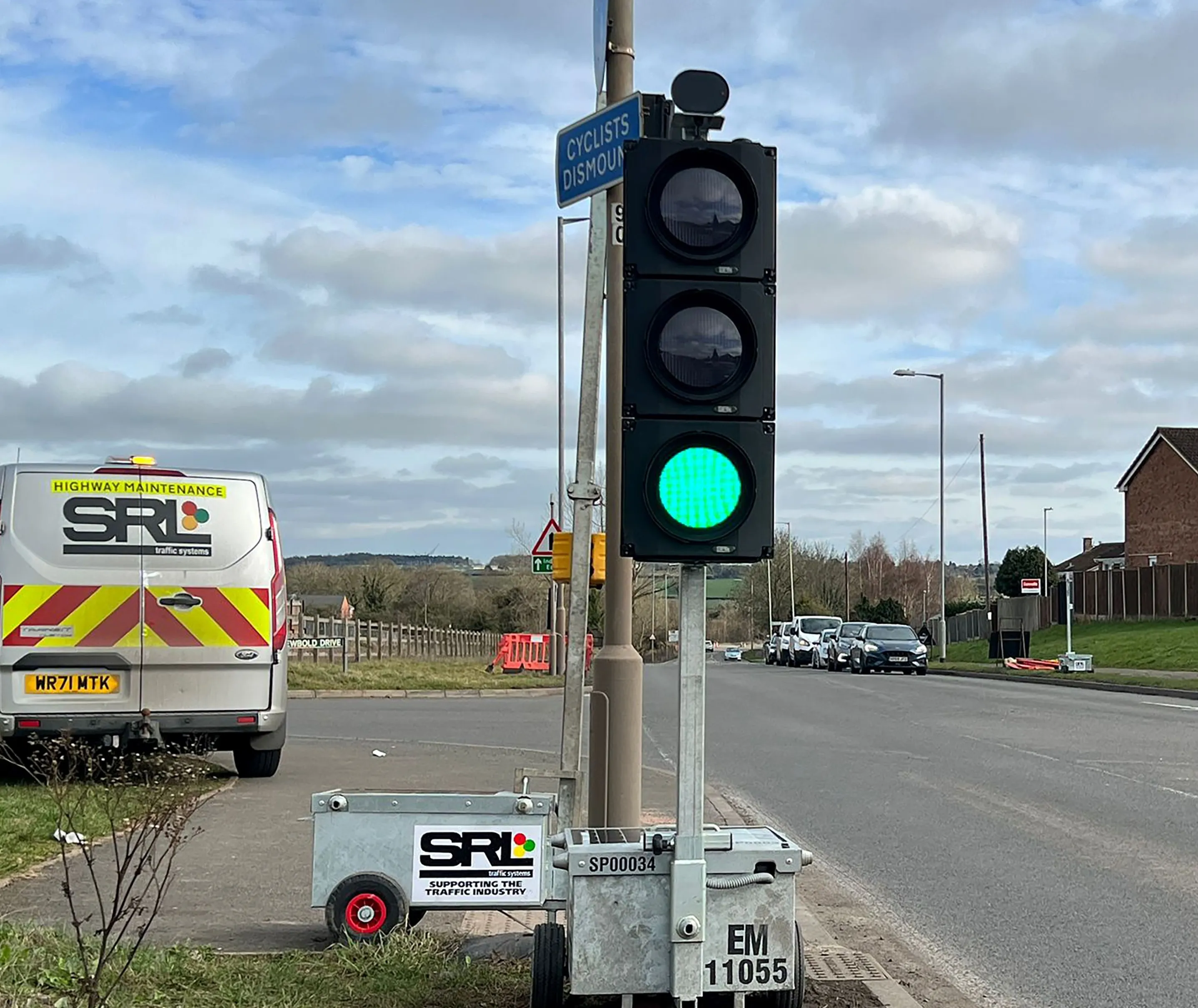
SRL Traffic Systems has launched its solar technology product for mobile traffic signals, the Solar Plus system.
SRL says its system is the only solution on the market that can be retrofitted onto customers’ existing stock, and is part of the company’s growing solar portfolio.
Designed and manufactured in the UK and available exclusively for hire, SRL Solar Plus significantly extends battery cycles, reducing electricity consumption and the frequency of exchanges required, the firm says.
Early results from SRL’s alpha tests designed to identify the optimum cell are showing the product’s potential to eliminate exchanges for months at a time. The beta trials that have been running on live customer sites throughout the UK since November show that the solution is performing well in even the poorest weather conditions.
SRL’s Solar Plus works with either AGM (absorbed glass mat) or lead acid batteries. However, the solution is best suited to products using AGM batteries, as they are designed to discharge and re-charge better than lead acid alternatives. Traffic lights incorporating the new technology run with three batteries in the base of the box.
The signals are available to hire via a range of flexible, added value contracts, SRL says. Traffic management companies that have previously purchased SRL’s Pedestrian, Radiolight and Eurolight signals may hire SRL Solar Plus lids, retrofitting their existing stock and promoting circularity. Retrofitting is undertaken by an SRL commissioning engineer.
Signals featuring SRL Solar Plus incorporate a telematics device within the boxes. The unit empowers operations managers to check battery charge levels and system functionality remotely, enabling them to identify exactly when batteries need to be exchanged or serviced. It also allows them to monitor their assets’ precise locations.
Longer battery cycles, telematics and a sturdy product reduce the frequency of site visits required. As well as creating savings of both time and money, this enables traffic management companies to cut the amount of carbon emissions and air pollution associated with each project. It also minimises the length of time which staff are exposed to traffic.
SRL Solar Plus comes with a five-year warranty and its components can be recycled by SRL, noted chief executive Adrian Murphy.










